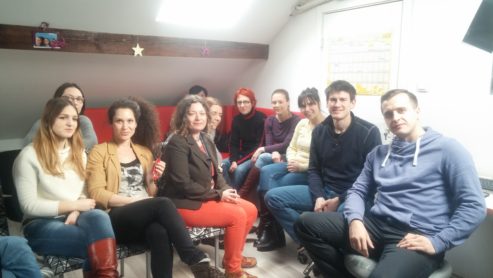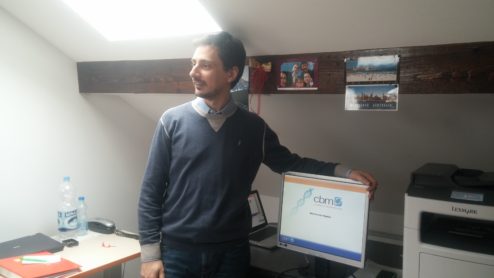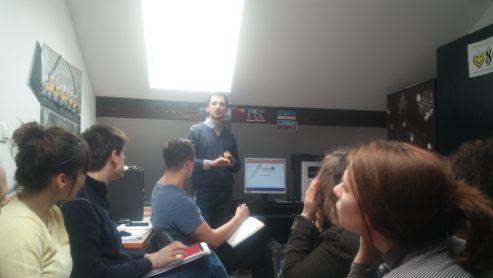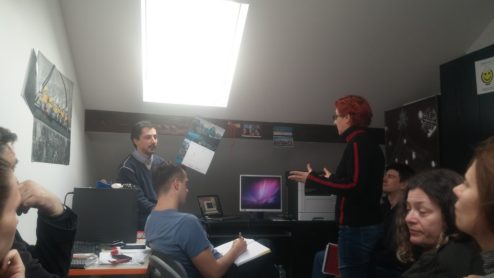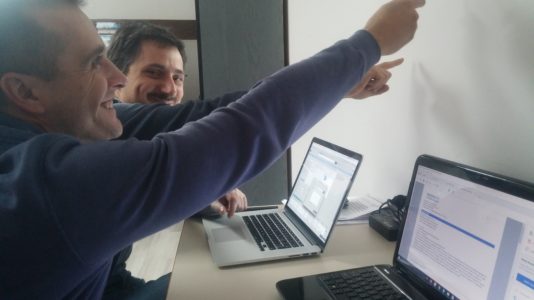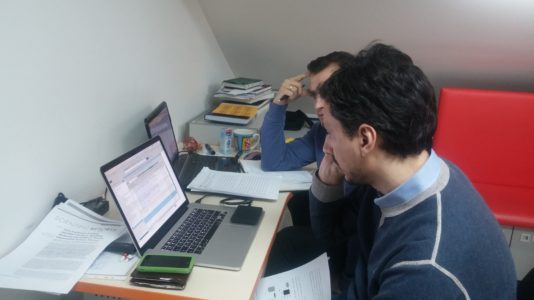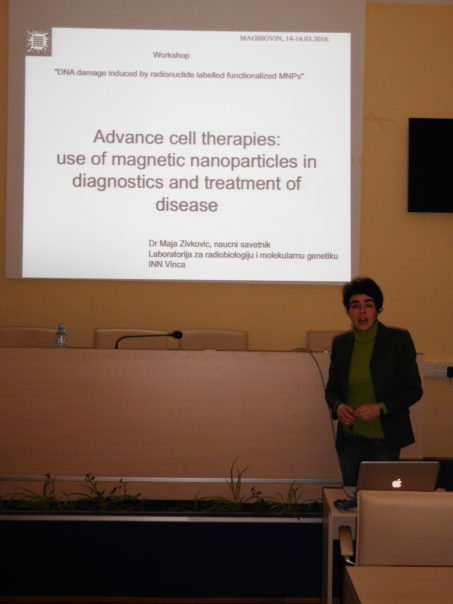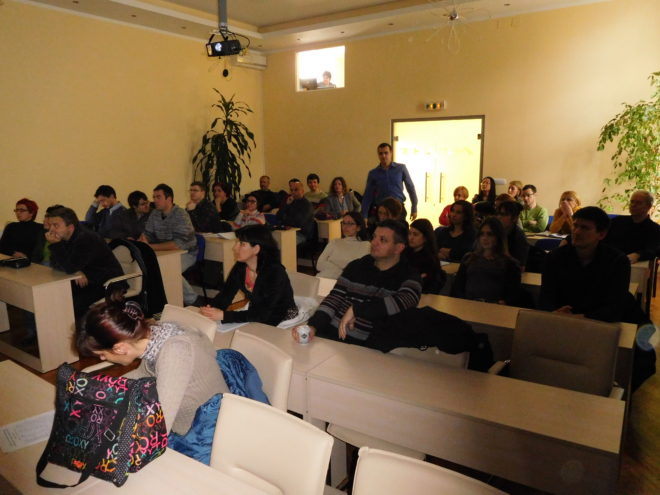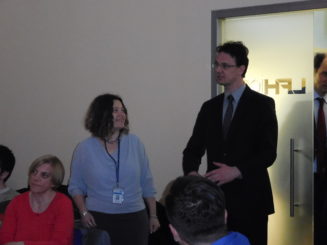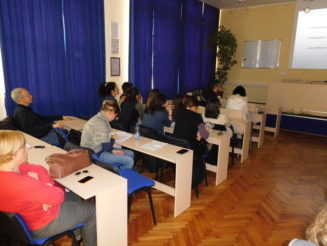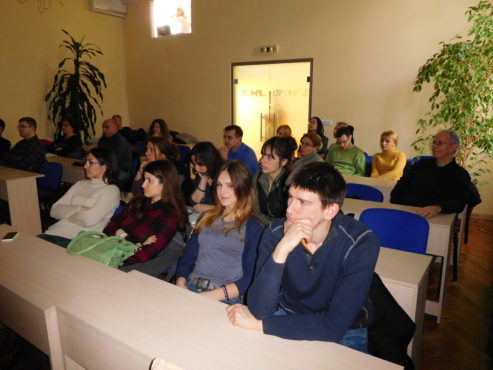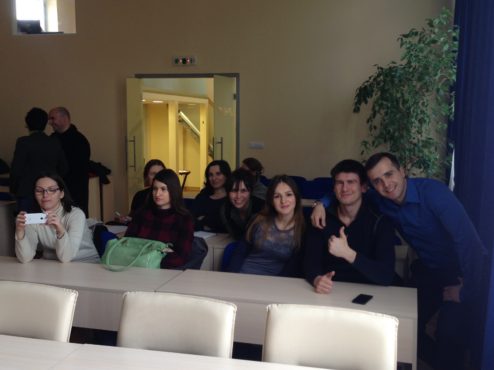March 14-15th, 2016; MagBioVin Workshop DNA damage induced by radionuclide labelled functionalized MNPs
Dedicated Magbiovin Workshop ‘DNA damage induced by radionuclide labelled functionalized MNPs’ was held in the Institute of Nuclear Sciences Vinca on March 14-15th 2016.
The workshop was announced in advance in Academic Network of Serbia and was opened for a wide scientific public coming from National Institutes and Universities.
During the first Workshop day, 37 participants had opportunity to discuss about the state of art research topics from the field of Use of bioinformatic tools in genetic research. The second day was devoted to the practical work in the laboratory, where 10 Magbiovin team members participated in hands on part. During the first day, Minister of the Education Science and Technological Development, Dr S. Verbic also visited the Magbiovin Workshop and Institute of Nuclear Sciences Vinca.
The bioinformatics represents a necessary tool in current molecular research, from the use of databases, through prediction of molecular interactions and data mining, to data analysis. The dedicated Magbiovin workshop was focused to the use of bioinformatics tools in genetic research in biomedicine. It addressed the usage of available and free concepts and software in the integrative analysis of data sets. Especially, the use of databases and data mining is necessary in today’s research, when the plethora of data is available. The two days workshop was organized with 3 lectures that covered the theoretical background of the workshop topic and interactive workshop with hands on analysis.
Workshop program:
- Lecture title: “TRIM E3 ubiquitin ligases in health and disease”, Germana Meroni PhD, full research professor, Molecular Genetics lab, Department of Life Sciences, University of Trieste, Trieste, Italy
- Lecture title:”Advance cell therapies: use of magnetic nanoparticles in diagnostics and treatment of disease”, Maja Zivkovic PhD, full research professor, Institute of Nuclear Sciences “Vinca”, University of Belgrade, Department of health and environment, Laboratory for Radiobiology and Molecular Genetics, Belgrade, Serbia
3: Bioinformatic Pipeline, by Danilo Licastro, Cluster in Biomedicine, AREA Science Park – Basovizza campus, Trieste, IT.
The first lecture of Prof G. Meroni, Molecular Genetics group leader, Department of Life Sciences, University of Trieste, followed the initial definition of protein family, genomic characterization in different species including humans, and protein function and role in health and disease, with particular focus on cancer.
In the second lecture, Dr M. Zivkovic was focused on the current knowledge of use magnetic nanoparticles in diagnostic and treatment of disease, with focus on microarray experiments in different cell types and tissues and comprehensive data analysis.
During the second Workshop day, attendants had opportunity to listen to introduction lecture of guest from Trieste, D. Licastro and to participate in the interactive hands on workshop, covering exploratory techniques for both quality of data and further gene expression data analysis.
The quality of the results and following experiments in many ways depend on the assesment of input data and removing of outliers. Exploratory methods, that could be unsupervised or supervised, offer significant help in the evaluation of the relationship between the whole genome expression intensity in different samples, creation of homogenous data and increasing of the power of study. Part of the lecture was dedicated to statistical methods used in functional annotation of differentialy expressed genes. At the moment, there is an increasing number of professionaly curated databases of molecular pathways, gene regulatory networks and hierarchical annotations of biological processes, molecular functions and structural components. As the understanding of computational algorithms for bioinformatic analysis of large sets of differentially expressed genes makes an irreplaceable method for extracting of biological meaning from the gene sets and for planning of validation experiments, the lecture was of great benefit for Magbiovin team research.
During the hands on part, we performed analysis of the gene expression data originating from our previous experiments and public available data sets. Differentially expressed genes were maped onto molecular pathways, gene regulatory networks, and different subsets were characterized with biological meaning. Also, gene candidates for the validation of the microarray gene expression results were designated. Upstream analysis was performed for the identification of potential regulators of specific gene expression paterns. The analysis required the employment of tools necessary for the preparation and analysis of large gene sets: Gene Set Enrichment Analysis – GSEA, R/Bioconductor, ROAST: rotation gene set tests for complex microarray experiments, Database for Annotation, Visualization and Integrated Discovery –DAVID.
